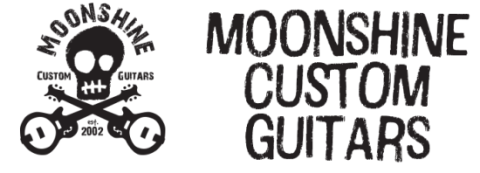I recently had a client approach me about putting a ramp on one of his
beautiful Kiesel basses. T. J. Armstrong, is a Canadian born Nashville
Bassist who has been playing with Tele Legend Johnny Highland for
some time now. The man knows his way around a bass and is a killer
guitar player as well. He is also a super nice Guy and very professional
in relating to me just what he was wanting.
He is also an endorsee for Kiesel Instruments. If you never
heard of Kiesel, they are part of the Carvin Corporation who’s been
around since the fifties. As did Carvin previously, Kiesel are top quality
instruments that are known for their super accurate fretboards and
excellent playability. The two Kiesel 5 strings that T.J. brought with
Him were certainly some of the easiest playing basses I have ever
encountered
I have seen basses with ramps but I had never played a bass with one
Before, to be honest I looked upon them as the “bass fad do jour”. I
have heard players describe how they function, that it keeps your
fingers from digging in too deep under the strings thus allowing you to
play faster and more articulate to which “Grumpy old Guy” Me thinks:
“Yeah, whatever… Give it a couple months and these things will go the
way of Fatheads and Gizmotrons”… and “where in the hell did I put
that 7/64” allen wrench… I just freaking had it… Crap”. Anyway, back
to the ramp. I have always been open to trying new things so when T.J.
approached me with the idea, I said “let’s do it!”
T.J. was real clear about the dimensions he was looking for with this
ramp; he wanted it to be wide enough that it lined up with even with
the sides of both pickups. He also wanted the height to be the same
as the rear pickup and slightly higher than the front pickup (more in
line with the rear pickup)
The type of wood to be used was not that important as T.J. wanted the
ramp to be black to match the pickups. I could used ebony (and that
would of looked really cool) but I didn’t have a scrap piece on hand that
was close to the dimensions I needed (I had already discussed with T.J
that most likely I would be staining or painting the ramp). After going
through my scrap bin I found a piece of curly maple that was just the
correct thickness I needed.
The next step was to measure and mark the correct dimensions.

Height of Blank
Cutting and fitting of the blank
Next I marked the center line and measured for the centers of the pickup screw mounts.
This brought me taking the ramp down to the proper height; I marked the height of both pickups on the ramp blank.
Then used a stationary belt sander to take the ramp down to the desired height.
Time for stain/paint. Started out black leather dye then sprayed with polyurethane for the sealer.
Next I sprayed lacquer for the top coats
Okay. After trying it out I have to say that I’m a convert; It truly makes a difference. Pretty amazing actually, something I have never considered.
I’m happy. T.J.’s happy. Mission accomplished.
-Rick




















